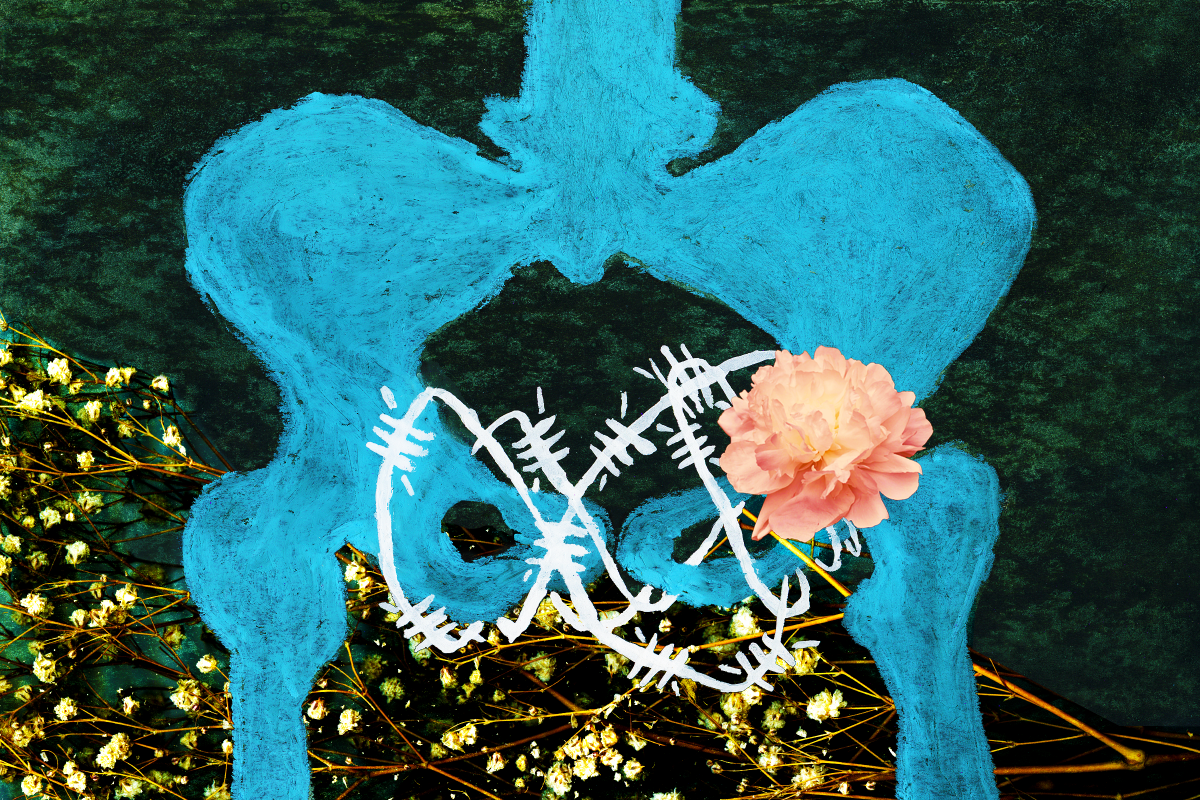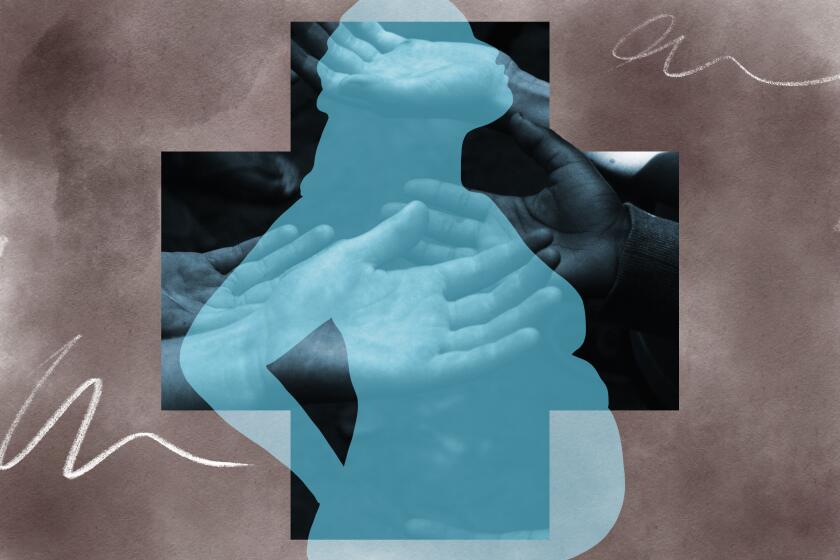My pregnancy caused crushing pain. Why didn’t my doctors think that was a problem?

- Share via
When I was pregnant with my second child, the pain in my pelvis was extraordinary.
“It’s normal,” my white obstetrician said. I told her I had never felt such pain. She instructed me to walk with small steps, “like a geisha.”
When giving birth, I again said that something was wrong. My pubic bone felt broken. The same obstetrician assured me that the pain I was feeling was normal. I told her that a nurse had recommended, during an earlier visit, that I labor on my side because of a possible pubic rupture. The doctor asked me to show her what I meant, but I couldn’t demonstrate while in active labor. So she directed me to my back, the way she had been trained. After my baby arrived, I became paralyzed from the waist down for some minutes. Then the pain crushed into my hips, and I began to scream.
We need to end a culture of obstetric racism that has resulted in a maternal mortality rate for Black women that is around three times that of white women.
The doctor never acknowledged that she hadn’t listened to me or that her own training had failed me. She prescribed physical therapy and a specialist to treat my split pubic bone. That I had felt broken, and likely was, even before labor, was brushed off as merely what happens to women’s bodies.
As a Black woman, I’m accustomed to my pain not being taken seriously by doctors. A majority of Black Americans report having negative healthcare experiences, including “having to speak up to get proper care and being treated with less respect than other patients,” according to a Pew study. Black women are also three times more likely than white women to die from a pregnancy-related cause. And Black patients report that their pain is undertreated.
In my experience, however, the solution isn’t only about having a Black physician. Even Black women, raised and educated in this society, can assume our bodies should be sick or broken. Without enough counternarratives, Black people can easily internalize racism; women can easily internalize misogyny.
As a novelist, I understand how storytelling can influence people’s perceptions. My own reproductive health treatment has shown me that women’s true stories of pain are being neglected by our medical providers because of the problematic ways our society views women’s pain. We need to be braver in telling these stories, and humbler in taking them seriously.
From the time a girl gets her period, she’s told to toughen up and bear it. As I’ve moved through my reproductive years, not much feels like it’s changed.
After having my third child, I decided to go on an intrauterine device, or IUD, a form of birth control that’s a little hook made of bendy wire. Then came the pain.
I showed my new gynecologist the place in the corner of my hip where it hurt, which started along with spotting blood after I had sex. I’d thought the IUD got jostled around.
She insisted that it wasn’t the IUD, and that sex can cause pain and bleeding. But that had never happened to me.
“Then you’ve been lucky. It’s just your body.”
This gynecologist was a Black woman. And yet here I was again. She assumed pain to be my body’s natural and acceptable state. Was that what she had been taught to accept for her own body? I asked her to replace the IUD, but she insisted I wait it out.
I switched physicians. I told the new doctor: Take out the IUD and put in a new one. I don’t know what her training or personal life had taught her, but I know she was a wife and mother. When she took the IUD out, she told me it was broken — bent and sideways and bloody. It had been scraping me.
It took an exceptionally good doctor, who happened to be white, to overcome a bias that even Black female doctors had about my body. My previous doctors, white, Black, of color, weren’t necessarily bad doctors. They were relying on what their training, medical and societal, had led them to believe and taught them to do.
Because my new gynecologist seemed like she was listening to me, I stopped her before she put in the new IUD. “What if I have pain and bleeding again?”
Women’s health problems would get more attention if the healthcare industry wasn’t dominated by white men. Here’s how we can make it more diverse.
She pushed back from the examination table and looked me in my eyes as we talked: IUDs are imperfect. Medicine is imperfect. We make the best decision under the circumstances. She added: “You decide now if you want a new IUD, a different kind of IUD or something else altogether. Pain and bleeding isn’t normal. But you knew that. I read your file.”
She may have known about my torn pelvis during pregnancy or my other experiences. In the medical records, my specific body had its own literature for her to learn from. She didn’t assume my body was a problem. My doctor listened to my specific story and assumed that my narrative was valuable in treating me. We both agreed that my being healthy was normal. I hope that’s the starting point other doctors and patients will embrace too.
Tiphanie Yanique is a professor of creative writing at Emory University and the author of four books, including the novel “Monster in the Middle.”
More to Read
A cure for the common opinion
Get thought-provoking perspectives with our weekly newsletter.
You may occasionally receive promotional content from the Los Angeles Times.








